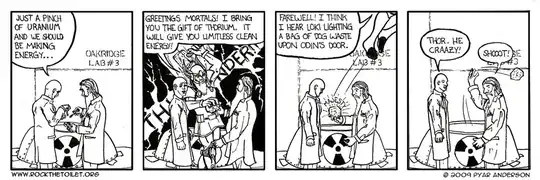
It seems that, as of lately thorium is steadily increasing in popularity, as an alternative to traditional nuclear fuels. Here's Mr. Kirk Sorensen in a TED video advocating the use of thorium. Thorium even has a nice, green website, among other resources expounding on how awesome it is.
The general picture projected by thorium advocates is that it is very much like a silver bullet for the energy crisis. This sounds wonderful, but also too good to be true. If it's as good as they say, how come thorium reactors are not common ? Surely it has disadvantages as well ?